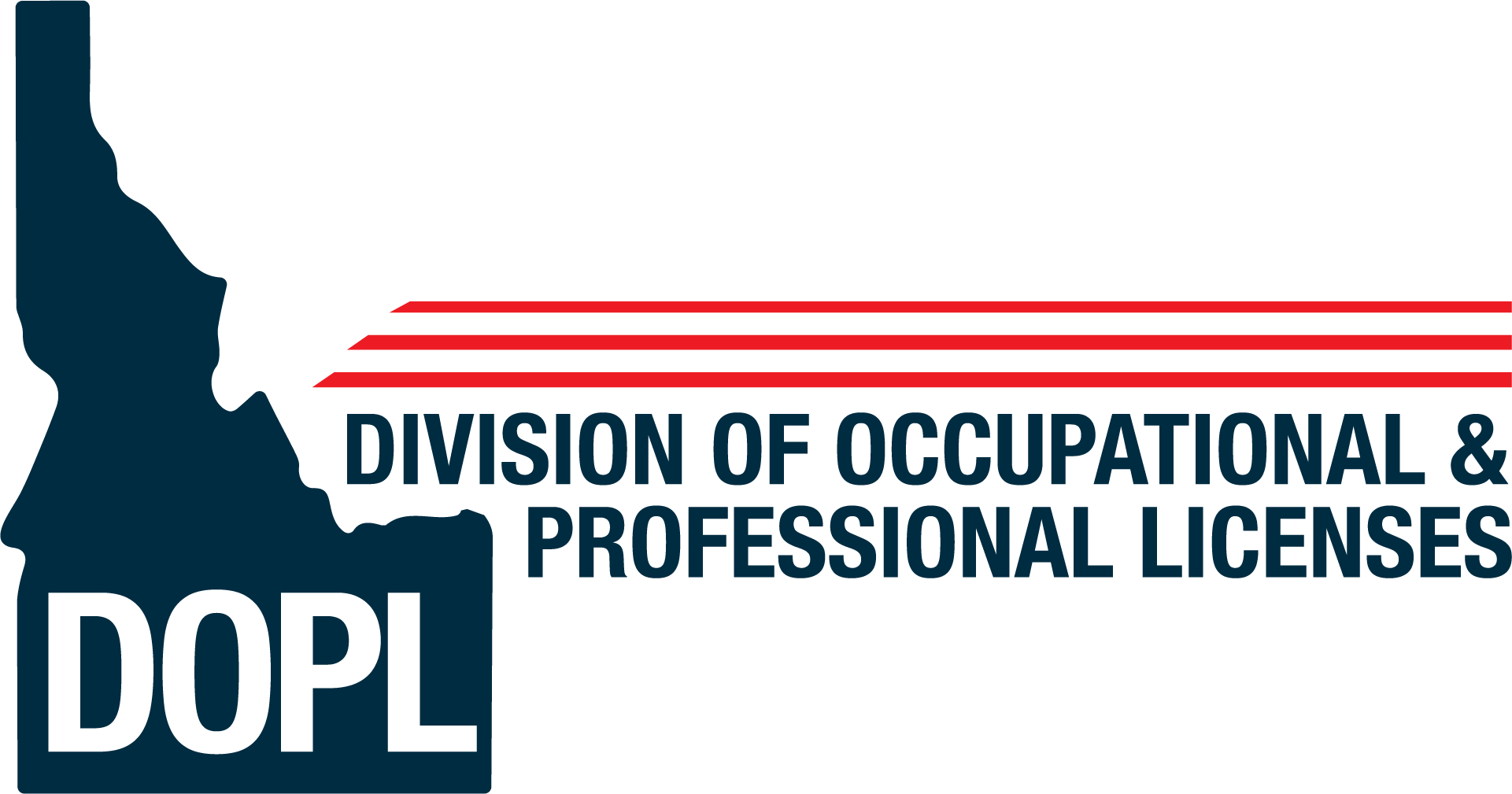General
Q: How can I determine if I need to be licensed?
A: Applicants must determine if their scope of work meets the legal definition of Plumbing work as outlined in Title 54, Chapter 50 of Idaho Code.
Q: How do I renew my license?
A: Please refer to this page.
Q: What happens if I choose to work unlicensed?
A: A person who performs plumbing work without a required state-issued license or who violate other applicable codes or rules are subject to civil penalties.
Hours worked without being licensed will not count towards the required OJT time.
Q: Does Idaho have any Reciprocal licensing agreements?
A: Yes. The states that Idaho has an agreement with are listed in the Reciprocal Information document.
Continuing Education Requirements (CEUs)
Q: Does the State of Idaho have Continuing Education Requirements (CEU) for plumbing?
A: There are no Continuing Education Requirements (CEU) for plumbing.
Codes
Q: What are the current codes adopted for use in Idaho?
A: The 2017 Idaho State Plumbing Code (ISPC) based on the 2015 Uniform Plumbing Code
Q: Who do I contact with questions about code requirements?
A: If you have code questions you may call our office at 1-800-955-3044 or (208) 334-3950. You will be directed either to one of our code specialists or to the inspector in your area who can answer your questions. You may also contact your inspector directly. A third option is to contact the Area Supervisor or the Program Manager at (800) 955-3044.
Inspections
Q: How can I request an inspection?
A: You can call the Interactive Voice Response (IVR) phone line at 208-334-3950 and follow the instructions provided. You will need your permit number and Inspection Code for the IVR.
You may also visit eTRAKiT and log in. Select “permits” to search for your permit and enter your permit number. Double-click on the number when it displays. Under actions (on the left), choose Request Inspection. Fill in the required information, choose your inspection type and the date; click on Add inspection then click Submit. Verify the inspection and click OK. Requests for a next day inspection can be made until 7 p.m. MST. There may be circumstances under which your inspection will not be completed on the date requested. Should this occur, you will be notified by telephone.
Q: How can I cancel an inspection?
A: You can call 208-334-3950 and follow the automated instructions provided. You may also visit eTRAKiT, click on “Online Permitting”, log in, and choose cancel inspections. Please note that requests must be made prior to 7:00 p.m. Mountain Time.
Q: How can I change my inspection date?
A: DOPL customer inspection dates can be changed by calling 208-334-3950 prior to the day of the inspection. If it’s the day of the inspection, please contact your inspector. You can find your local inspector HERE.
Q: How do I determine which jurisdiction an plumbing job is in?
A: list of inspectors by city is available for your reference. You may also contact the Division of Occupational and Professional Licensing at 208-334-3950.
Permits
Q: What is a permit?
A: A permit grants the holder authorization to perform specific construction and/or installation work. Permits are assigned a unique document number which is required when requesting inspections and approval of the work.
Q: When should a homeowner purchase a permit?
A: Homeowners may purchase a permit only when they are doing electrical, plumbing, or HVAC work on their primary or secondary residence and related outbuildings. Homeowner permits are not valid for work on commercial buildings.
Q: When is a permit required?
A: A permit is required when any electrical, plumbing or HVAC work is performed.
Q: Does a permit ever expire?
A: Every permit issued shall expire and become null and void after three hundred sixty-five (365) days from the purchase date or last inspection. A permit may be renewed for an additional year upon receipt of Division approval and payment of a sixty-five dollar ($65) renewal fee.
Q: If I have a building permit from the city or county, do I still need a permit (or permits) from DOPL?
A: Even though you have a building permit issued by a local jurisdiction, it may still be necessary for you to obtain permits from DOPL for electrical, plumbing or HVAC work.

